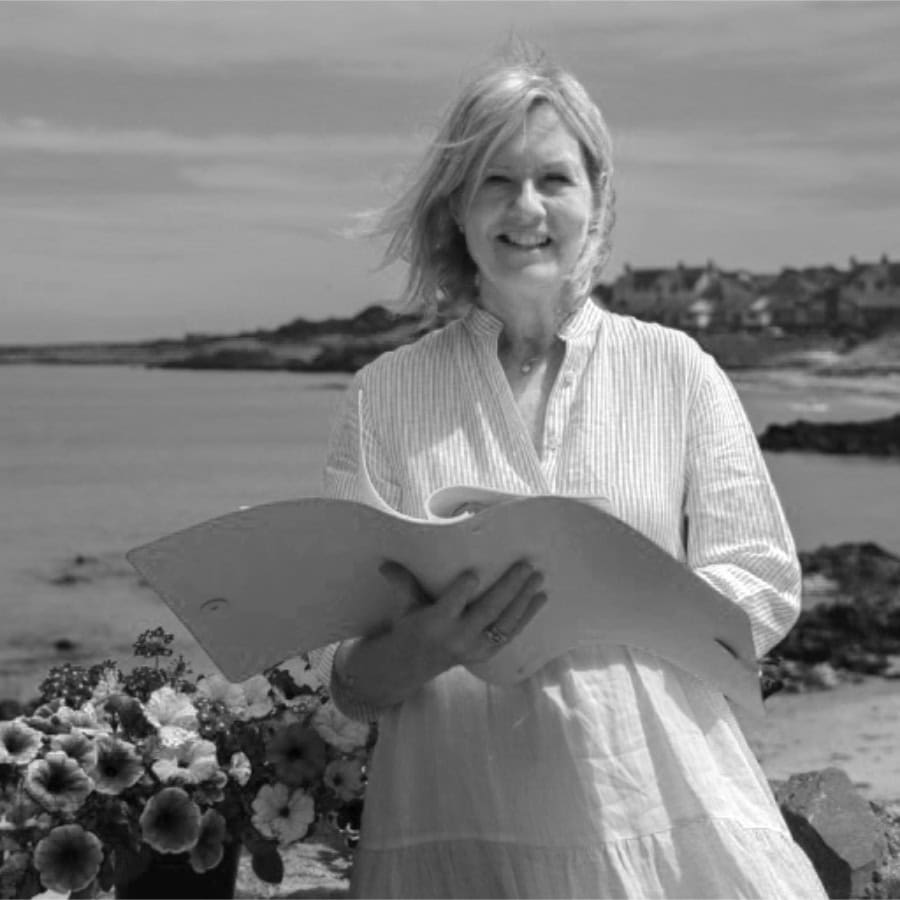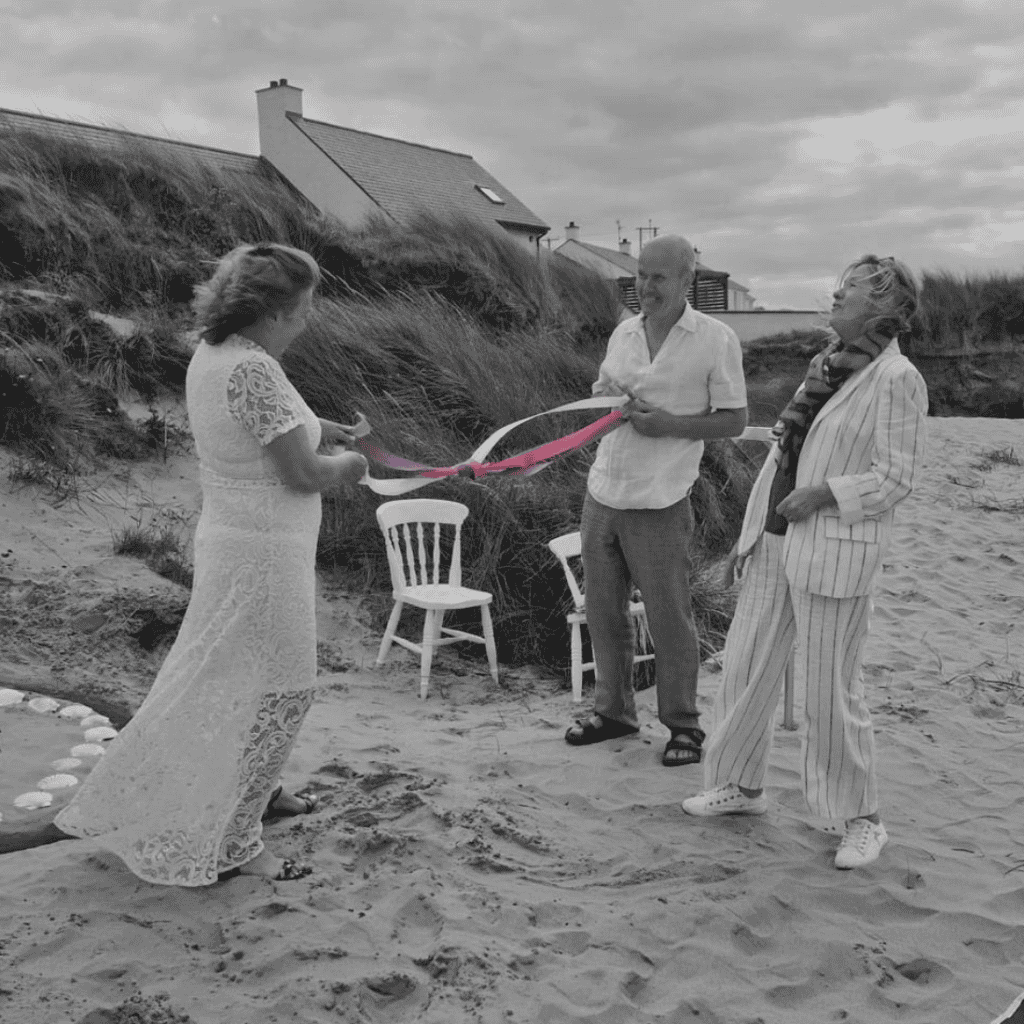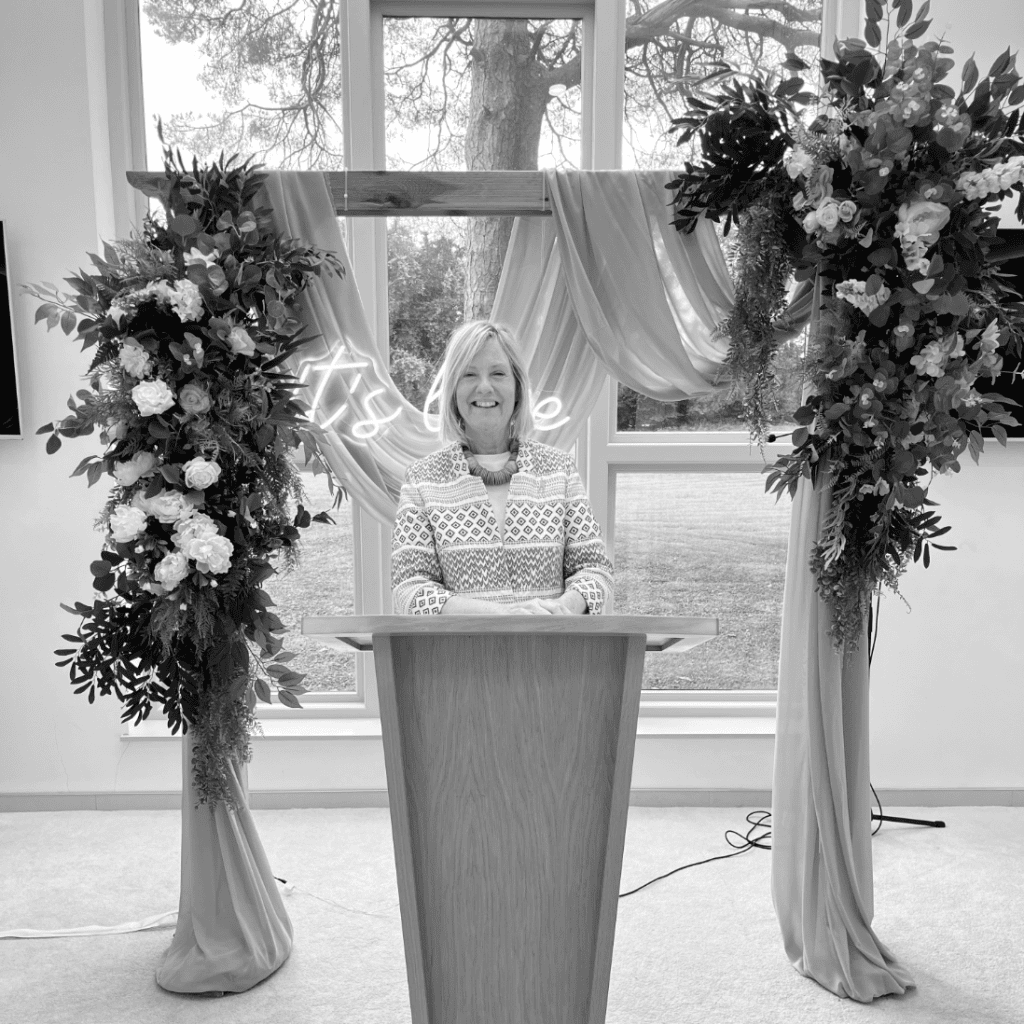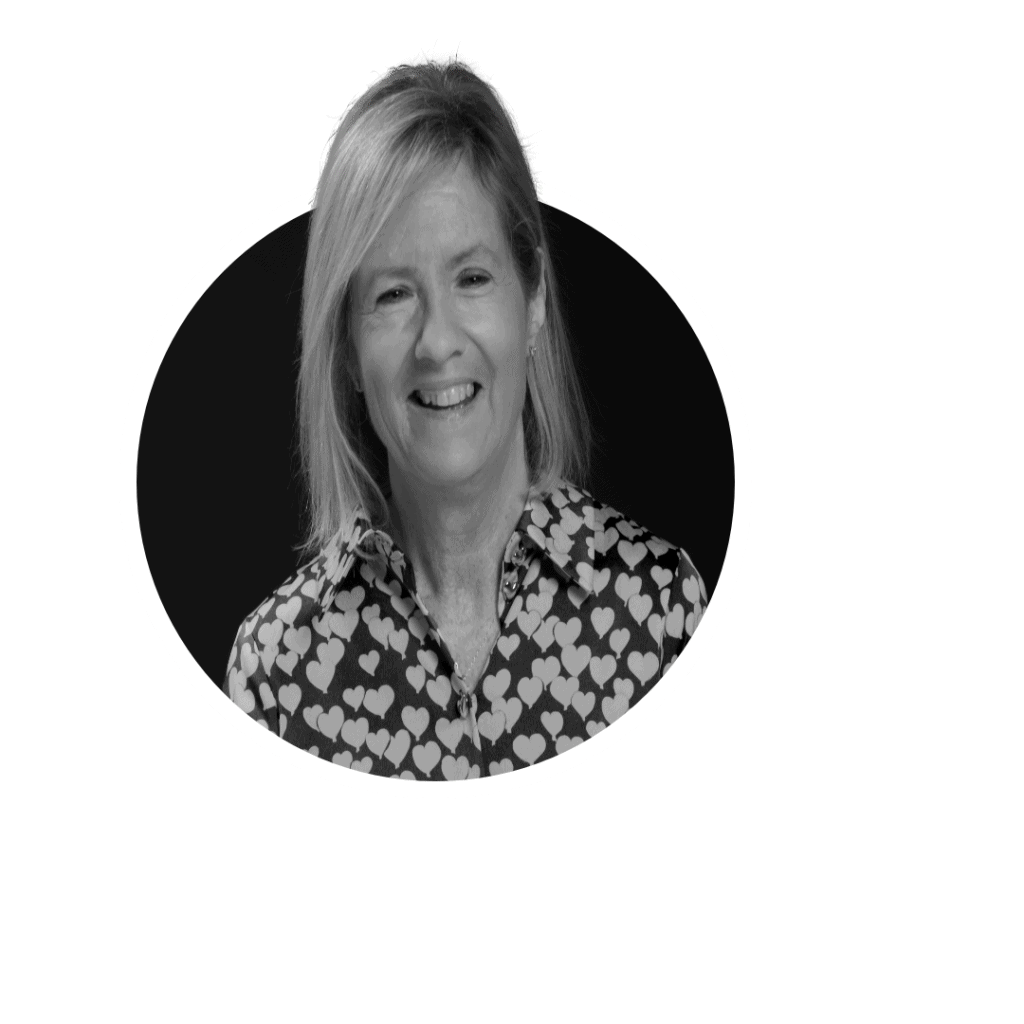What makes me different?
 Recent Article by kind permission of Ruth Dowds and County Down Spectator
Recent Article by kind permission of Ruth Dowds and County Down Spectator
The time was not so very long ago when weddings invariably walked down a traditional aisle, with a heterosexual couple exchanging conventional vows in a church or Registry Office.
Whilst tradition never goes out of fashion, a new way of doing things is gaining popularity amongst couples of all ages, backgrounds and genders, who want to put their personal mark on making a lifetime commitment.
Those prioritising this more individual approach are increasingly seeking out ceremonies conducted by humanist celebrants, of whom there are currently six living in North Down and Ards, who are trained and accredited by the charity Humanist UK.
Amongst them is North Down based Mandie Ritchie who explains that humanism is a way of living that brings together non-religious people.
She elaborates, “Humanism is about leading your best life, about being inclusive of all and being kind to everybody. There are really normal, beautiful, fabulous people involved in it.”
Mandie is typical of the conventional background from which many humanists come, having worked for the bank for 40 years.
“Come 2018 I was looking at what I was going to do with my life, and I discovered that it had just become legal for humanists to carry out weddings and it ticked every box for me,” says Mandie.
“I am not a religious person and during my banking career I looked after precious assets, people’s money, as investment was my side of it.
“I am now looking after another very precious asset, which is people’s futures and their lives and their marriages together, so it has a similarity.
“It also gave me a new outlet for engaging with people, which I adore; helping people, which I adore; and creativity which is very much part of my life.”
As with all Humanist UK celebrants Mandie has undergone a rigorous training and accreditation process through the charity and also takes part in regular CPD opportunities (continuing professional development).


She describes it as a privilege to be able to marry couples who might be of the opposite sex, same sex or divorcees – “It covers everybody and let’s everybody be involved,” she says.
“Weddings are not done in church or a civil building, I could marry someone on the beach, in a forest, anywhere.
“A wedding at the end of the day is a legal contract and that’s more or less what you get with a Registrar’s ceremony, and I’m not knocking that at all, because if you want that, that’s fine.
“A church ceremony is very much driven by the rules, regulations and beliefs of the church and the formalities of that.
“A humanist ceremony can be anything. It can be on the edge of a cliff and as long as it’s not religion it can include anything, so if you want something from your childhood or something that you really love involved in it, that can be included in it.
“The ceremony can have music of your own choice, it can have readings of your own choice, it’s totally personal to you.
“I had a couple recently where a girl was talking about possibly bringing her horse to the ceremony and it’s becoming more common now for people to bring their dogs to a ceremony.
“It is from 0 to 100, whatever you want to do,” explains Mandie.
“It can be a large wedding, it can be an elopement as long as we have bride and groom, two witnesses and myself. It doesn’t have to be anything big and fancy but they will have absolutely everything in that ceremony that they wish to include in it.
“The ceremony can be at 7am, it could be at midnight, it could be Christmas Day or a Sunday. I’m not saying we’re open all hours but if someone specifically said they really wanted to get married at lunchtime on Christmas Day, and I was able to do it for them, they could get married.
“There is complete carte blanche to what the couple want,” she adds.
In 2020, two years after it became legal for humanist celebrants to marry heterosexual couples, they were granted legal powers to marry same sex couples.
Some couples choose to convert a civil partnership to a marriage and hold a celebrant led ceremony to do so.
Once a couple decides to work with a celebrant such as Mandie, there begins a ‘through getting to know you’ process.
Mandie explains, “I prefer to offer the opportunity to meet in person for the first time, but it is whatever suits them best.


“We sit down for maybe 45 minutes which gives them the opportunity to see me, and I say to every couple to go home and sleep on their decision and make sure they are totally happy this is what they want.
“If they book me, we then go through the process of sending them a questionnaire about where they met, what they like about each other, that sort of thing, to give me a bit of a picture on top of the initial meeting.
“Then we will sit down for a longer meeting, maybe three hours, but it’s a light-hearted procedure.
“I take a lot of notes and put it all together and go home and I weave it. I then send it to the couple who can change whatever they want.
“I like painting and to me creating a wedding ceremony for a couple is like painting a painting, putting on brushstrokes and gently touching it up, adjusting this and making that bit better.
“The creativity of it is absolutely wonderful.”
On the day itself the celebrant not only conducts the ceremony but also oversees that the couple’s wishes are carried out correctly.
“I know who the musicians are, who the photographers are, who the wedding planner is,” says Mandie.
“Sometimes there can be wedding nerves but the lovely thing is that we are there and we have this strong relationship with them, so we can smooth the waters.
“I’m usually there for an hour afterwards to have a chat with people and though most people invite you to the reception, most celebrants don’t go.
“As far as I am concerned the wedding celebrant is not important. The wedding celebrant is the conductor of the wedding, they are not the main person, the couple are the main people, they are the focus of the whole thing.
“The wedding celebrant is in the background making sure their wishes are carried out the way they want them, making sure that all the plates spin and it works the way the couple wants it to work.
“It is all geared towards them and on the day of the wedding there are no surprises coming to them. They know what they have agreed for their ceremony and it is a magical experience.”
Symbolic actions are an important feature of many humanist weddings with events such as hand fasting in which a couple face each other and their hands and arms are wrapped together by ribbons.


Says Mandie, “It is done in such a way that you ask the couple to stand back and it physically ties a knot. It is fabulous looking and the lovely thing about it is that they can take that knot with them forever.”
She adds, “There are also things like ring warmings in which the rings can be passed around the wedding guests to give a wish with the ring and pass it back to them.
“There are also sand blendings which is a really lovely thing to do, especially when it is two families coming together.”
This is where different coloured sands are put into a jar by the couple themselves and close family members, to create a symbolic colourful blend.
“These are just some of the different things that can be built into a ceremony which just brings colour and interest to it,” says Mandie.
Every celebrant with Humanist UK is self-employed and prices for their services vary, but on average it can cost an average of around £750 to hire a celebrant.
Hear the story behind the ceremonies
Join me on Wedding Help NI as we talk through what a humanist ceremony looks like, personal touches that make it memorable, and practical tips for vows, readings and timings. Watch the video or tune in on Spotify for the full chat.


